Categories
- Shop All (5933)
-
-
- Hi-Vis Chainsaw Safety (14)
- Hi-Vis Coveralls and Overalls (29)
- Hi-Vis Hoodies and Shirts (45)
- Hi-Vis Jackets (40)
- Hi-Vis Pants (22)
- Hi-Vis Rain Wear (48)
- Hi-Vis Vests (54)
- Winter Hi-Vis Bombers and Parkas (26)
- Winter Hi-Vis Coveralls and Overalls (24)
- Winter Hi-Vis Hoodies (4)
- Winter Hi-Vis Pants (4)
- Winter Hi-Vis Vests (7)
-
- Bib Overalls (11)
- Bombers and Parkas (17)
- Coveralls and Overalls (17)
- Disposable Garments (12)
- Flannel and Plaid Work Shirts (24)
- Heated Work Wear (5)
- Hoodies and Sweaters (12)
- Industrial Rainwear (48)
- Pants and Shorts (70)
- Shirts and Sweaters (39)
- Thermal Underwear (44)
- Vests (18)
- Work Jackets (77)
-
-
-
-
- Brooms (0)
- Dust Mops (0)
- Dust Pans and Brushes (0)
- Flow Thru Tools (2)
- Microfiber Mops (0)
- Pool and Tank Tools (2)
- Scrubbers and Scrapers (1)
- Soap and Sanitizer Dispensers (0)
- Sprayers (3)
- Squeegees (1)
- Toilet Brushes and Plungers (1)
- Trash Cans & Bags (8)
- Wet Floor Signs (0)
- Wet Mops and Buckets (2)
-
- Bars and Prying Tools (22)
- Bolt Cutters and Shears (14)
- Chisels and Punches (12)
- Combination Hand Tool Sets (6)
- Extractors (12)
- Files (6)
- Gear Pullers (14)
- Hammers and Mallets (15)
- Hand Saws (6)
- Hex Keys (10)
- Layout and Distance Lasers (1)
- Marking Tools (1)
- Measuring Tools (24)
- Pliers (45)
- Precision Measuring and Testing Tools (24)
- Propane Torches (8)
- Screwdrivers and Nutdrivers (22)
- Sockets (60)
- Tap and Die Sets (4)
- Tool Boxes (16)
- Utility Knives (17)
- VDE Tools (7)
- Wire Cutters and Strippers (14)
- Wrenches (21)
-
- Beveling and Deburring (17)
- Curb and Valve Keys (19)
- Drilling and Tapping (8)
- Extended Impact Sockets (3)
- Flaring and Rerounding (7)
- General Pipe Working Tools (19)
- Guillotine Pipe Cutters (2)
- Hydrostatic Test Pumps (8)
- Internal Pipe Cutters (6)
- PE Peelers (8)
- Pipe Reamers (4)
- Pipe Threading (15)
- Pipe Wrenches (18)
- Plastic Pipe Joint Kits (2)
- Plastic Pipe Saws (5)
- Power Drive (6)
- Quick Release Cutters (15)
- Ratchet Shears (6)
- Ratcheting Wrenches (9)
- Rotary Cutters (3)
- Shut Off Tools (9)
- Soldering Torches (3)
- Vises (7)
-
- Angle Grinders (6)
- Batteries and Chargers (11)
- Bench Grinders (3)
- Circular Saws (2)
- Combo Tool Kits (10)
- Cordless Fans (6)
- Cordless Lighting (15)
- Cut Off Saws (4)
- Drills and Drivers (8)
- Grease Guns (3)
- Impact Drivers (5)
- Jobsite Radios and Speakers (9)
- Lifestyle (7)
- Mitre Saws (2)
- Reciprocating Saws (4)
-
- Angle Grinder Wheels and Brushes (24)
- Bench Grinder Wheels (7)
- Circular Saw Blades (11)
- Drill and Driver Bits (26)
- High Speed Gas Saw Blades (3)
- Holesaws (11)
- Impact Sockets (23)
- Jig Saw Blades (2)
- Oscillating Multi Tool Blades (1)
- Portable Chop Saw Blades (4)
- Power Tool Storage (5)
- Reciprocating Saw Blades (8)
-
-
-
-
- Air Fresheners (2)
- All Purpose Cleaners (19)
- Bowl and Washroom (8)
- Coffee and Breakroom (21)
- Degreasers (3)
- Dishwashing (4)
- Disinfectants and Sanitizers (1)
- Drain Openers (7)
- Hand Cleaners (15)
- Laundry Cleaners (10)
- Paper Products and Wiper Rags (24)
- Scale Removers (2)
- Urinal Pucks and Liquids (5)
- Wet Wipes (4)
-
-
- Ball Valves (13)
- Black and Galvanized Steel Fittings (16)
- Bronze Pipe Fittings and Nipples (16)
- Butterfly Valves (4)
- Check Valves (10)
- Flexible Connectors (2)
- Gate and Globe Valves (6)
- Knife Gate Valves (9)
- Pipe Fitting Accessories (6)
- Schedule 80 PVC Fittings (32)
- Stainless Steel Fittings and Valves (12)
- Victaulic Grooved Fittings (22)

Work Gloves – Protection & Comfort for Every Task
265 products
Showing 217 - 240 of 265 products
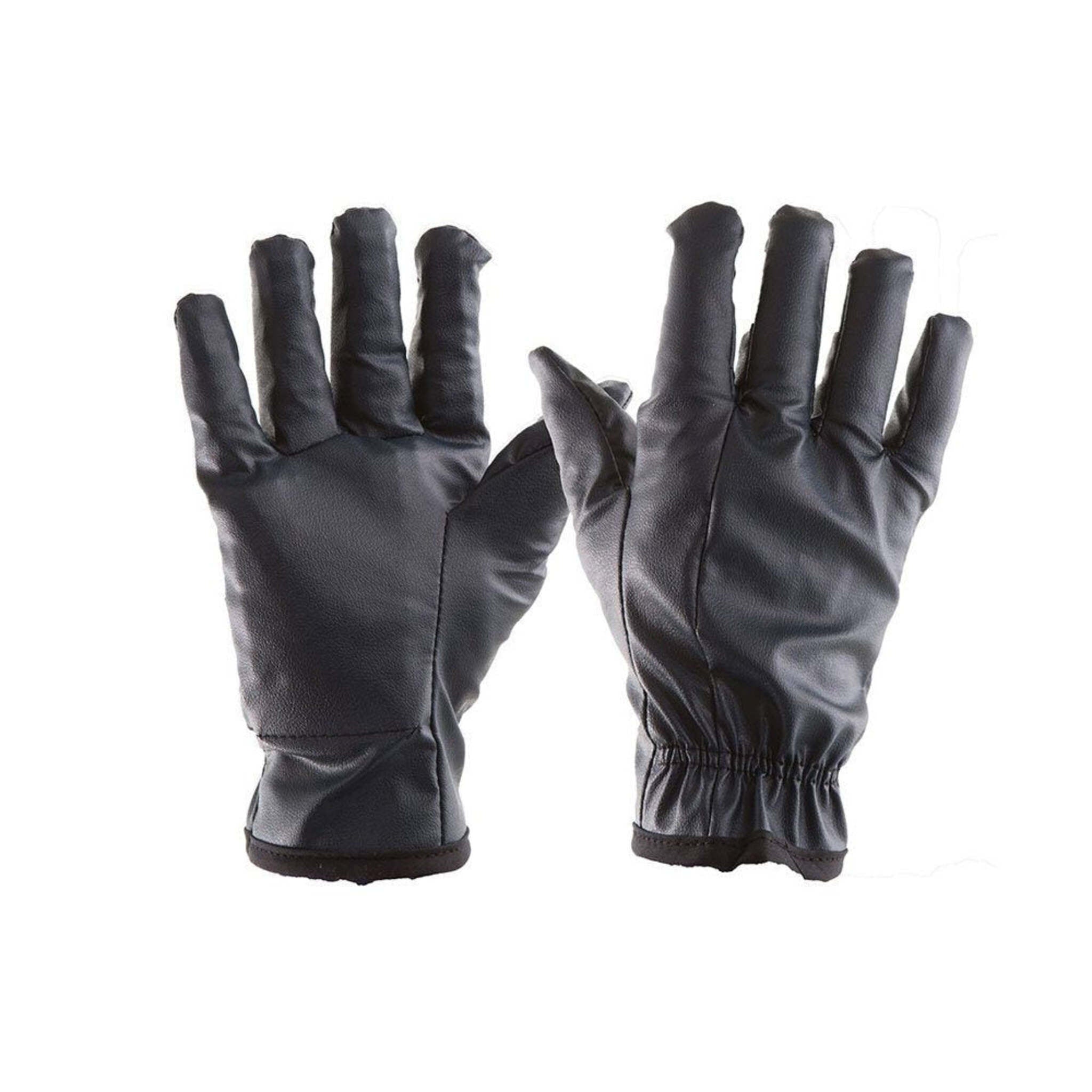
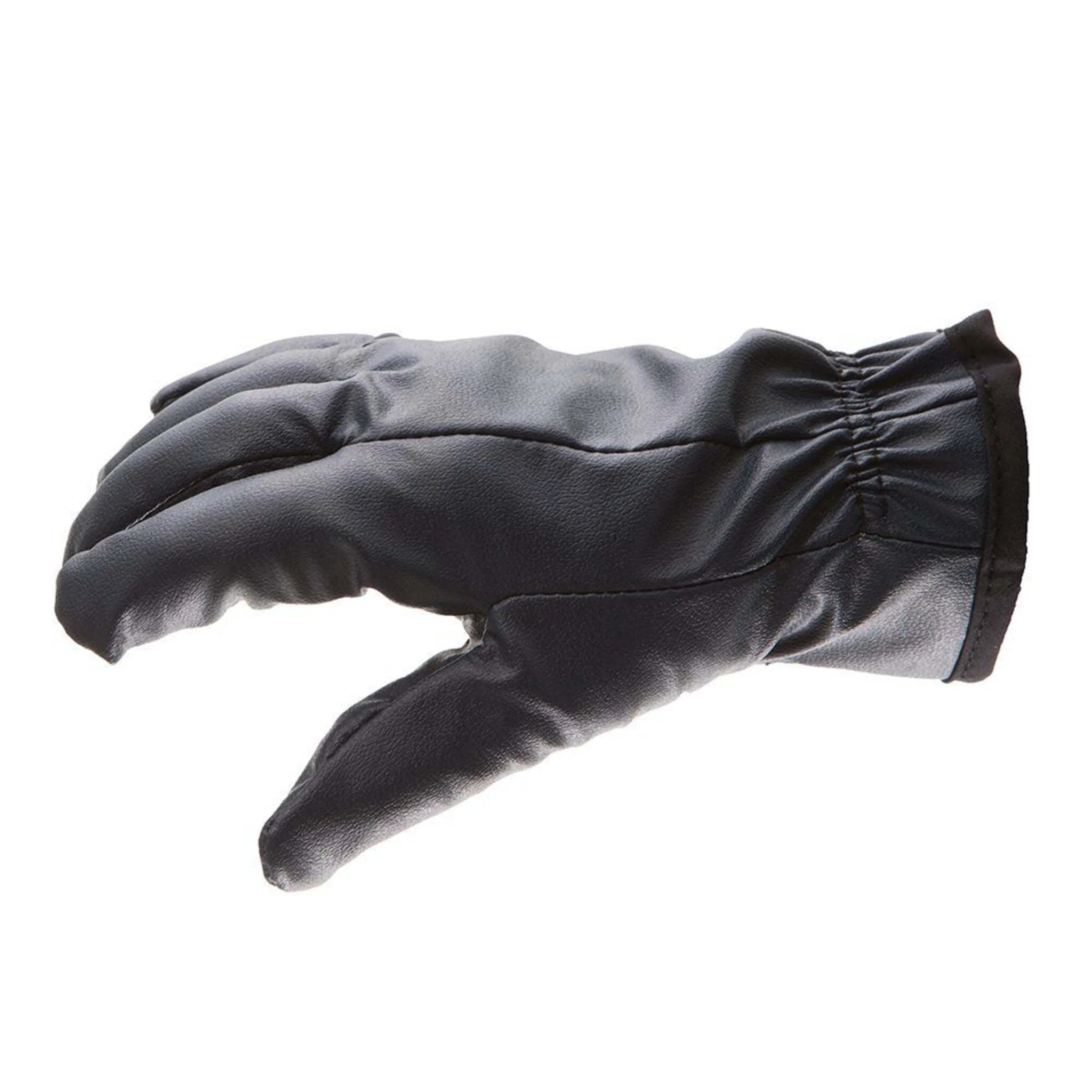
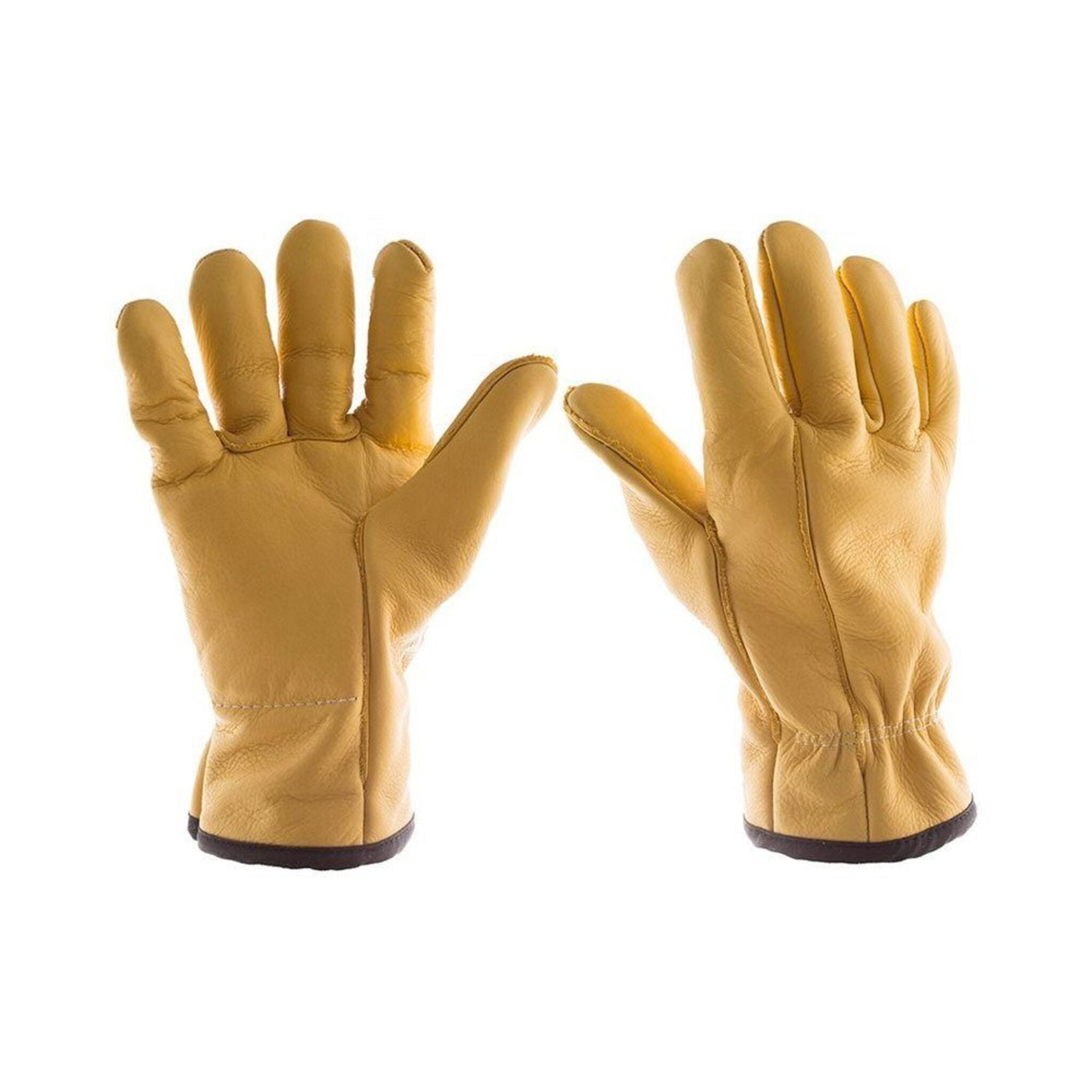
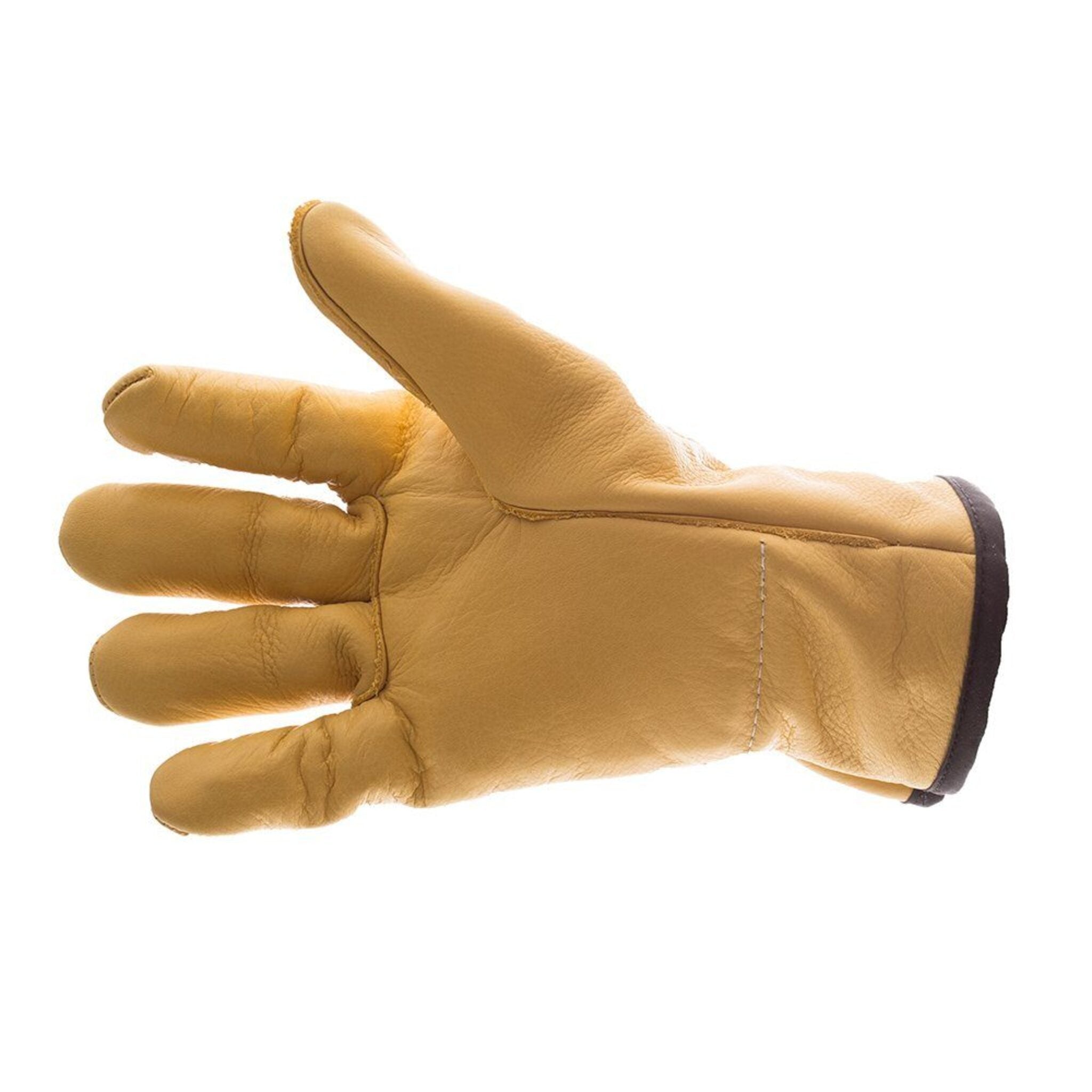
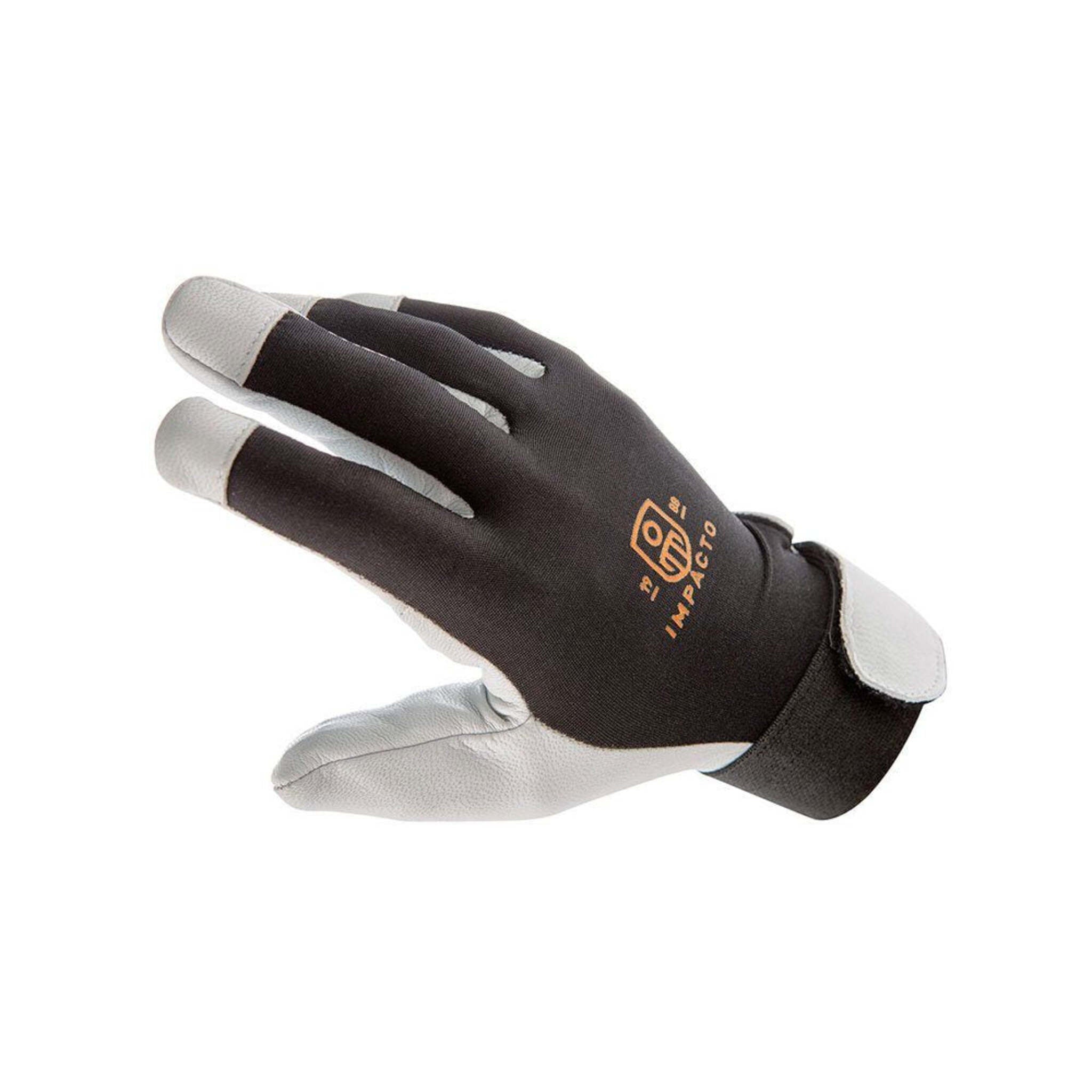
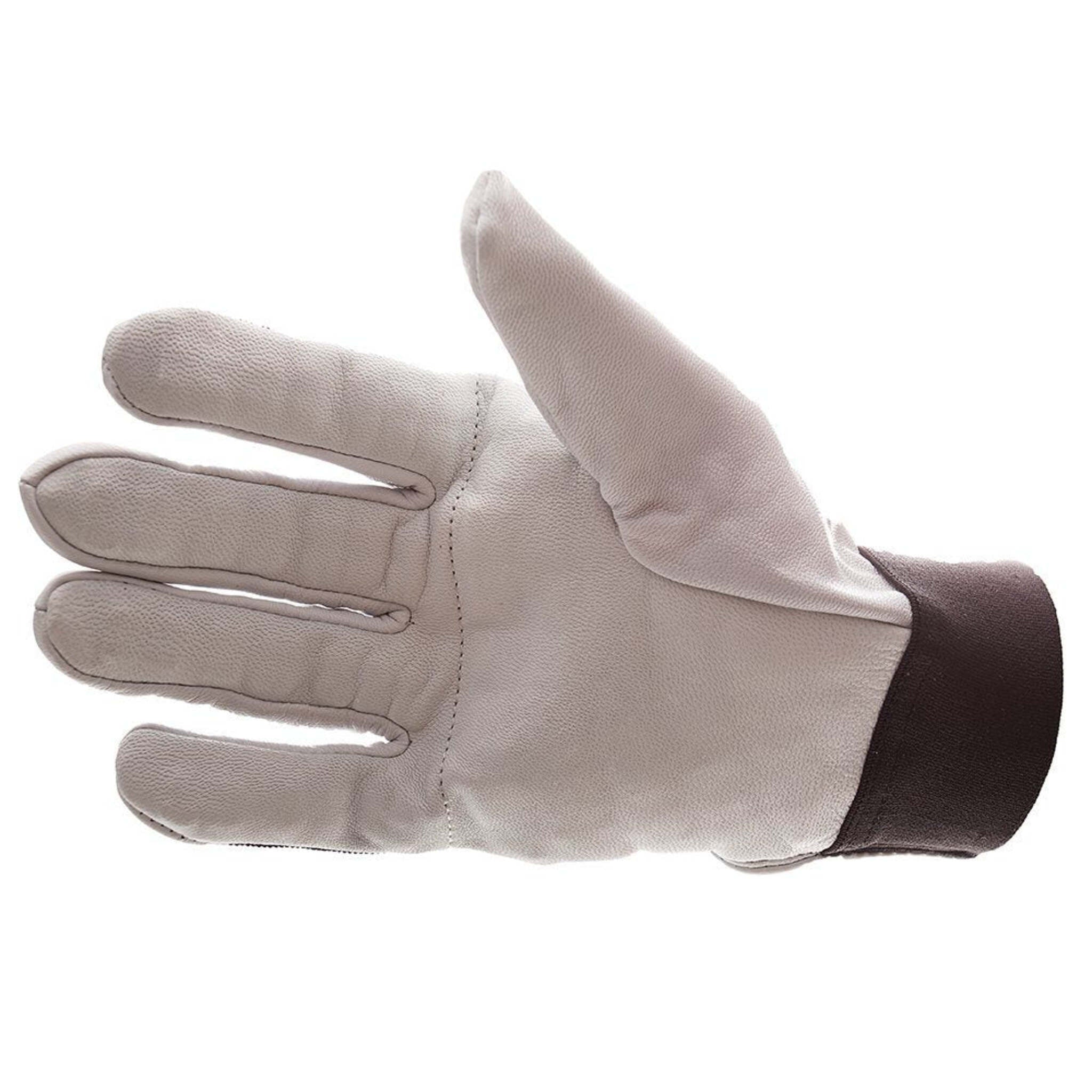
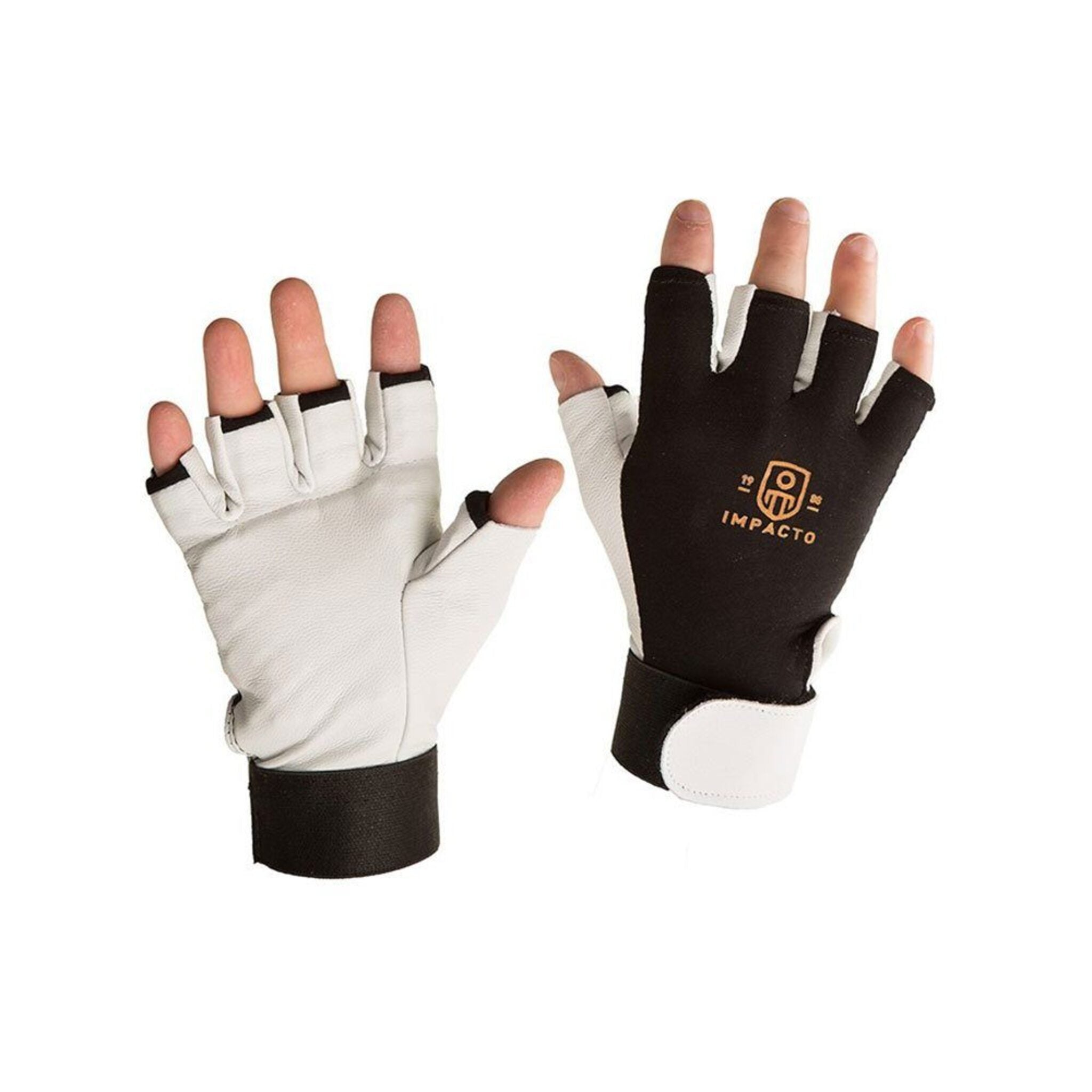
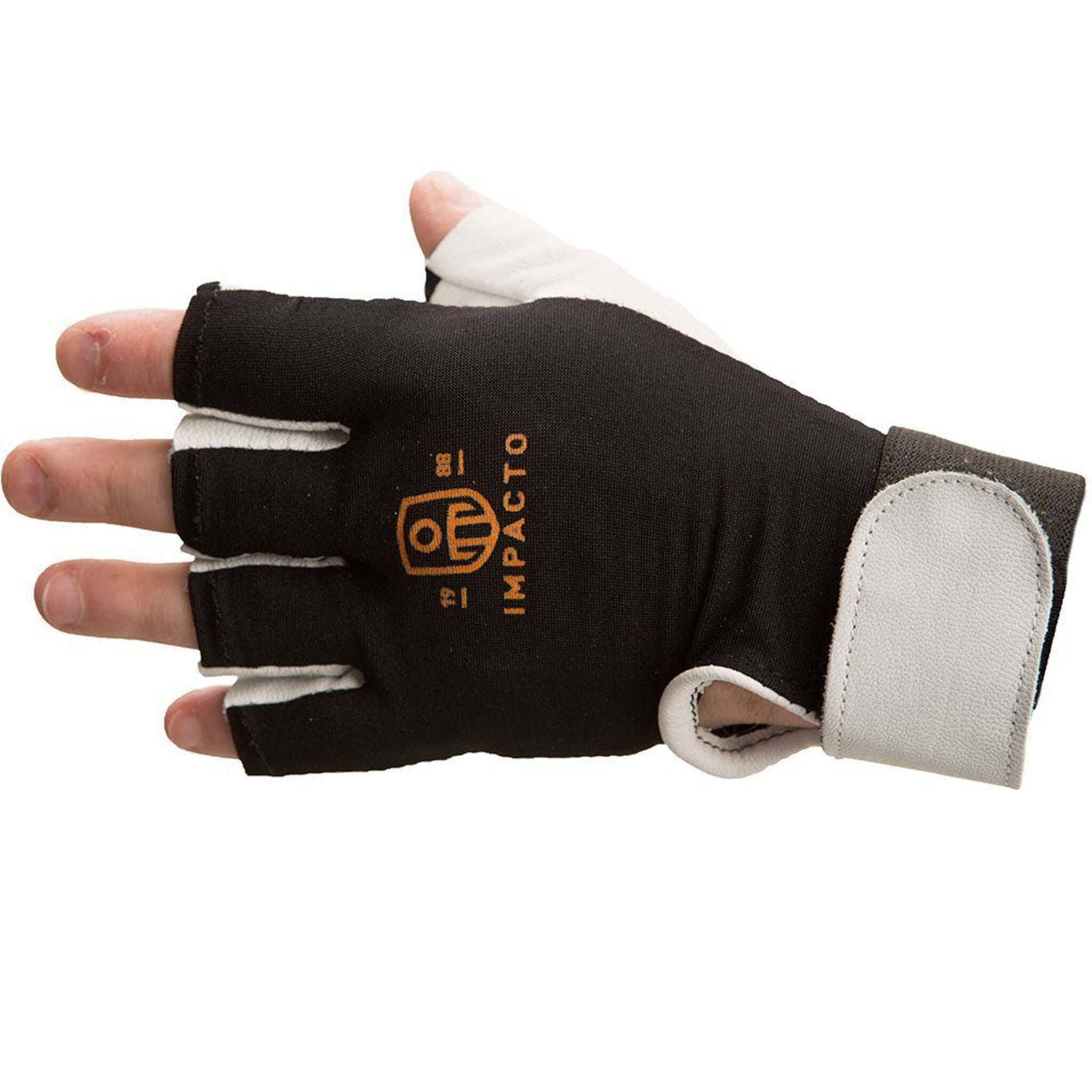
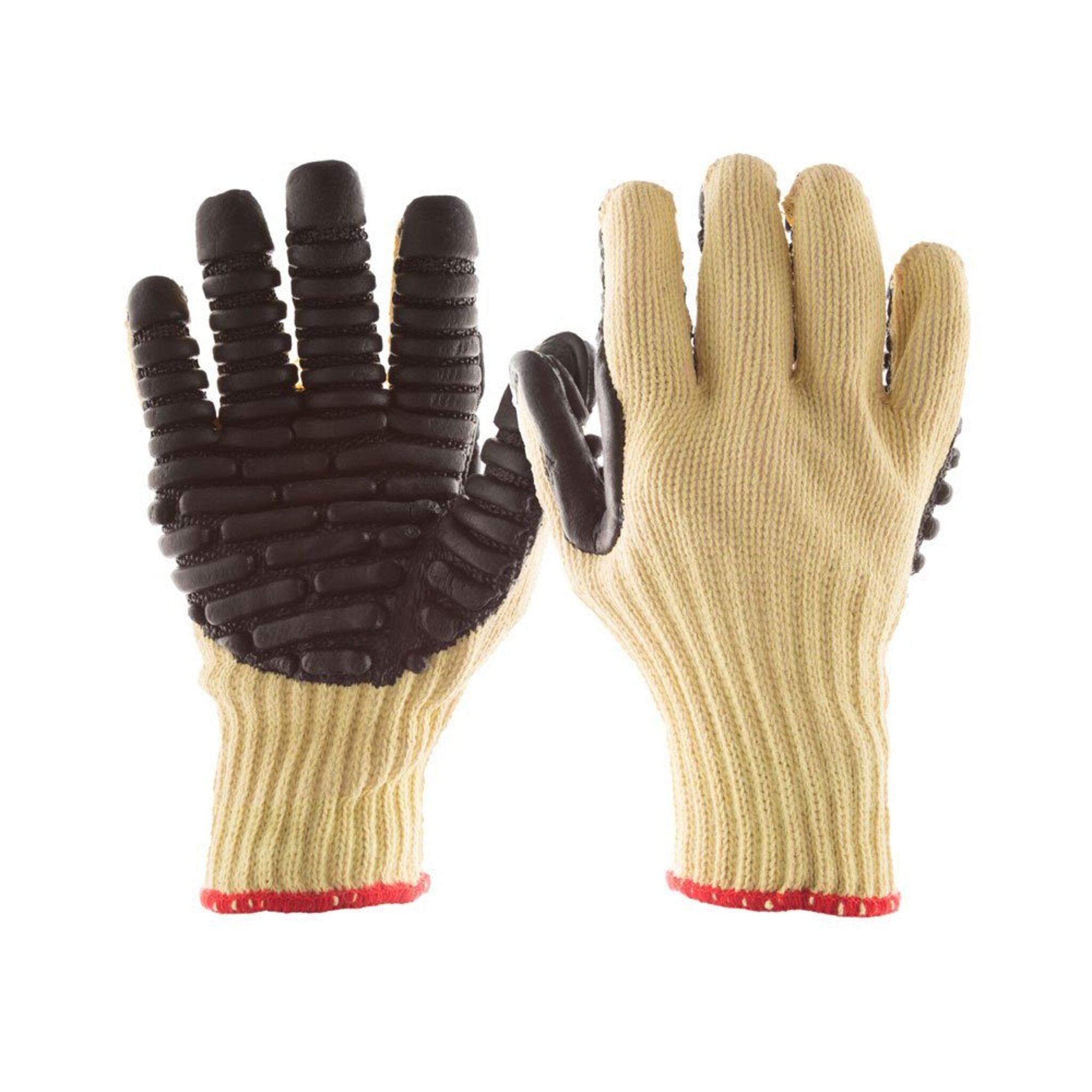

Work Gloves: Protecting Your Hands, Safeguarding Your Work
Work gloves are essential safety equipment designed to protect the hands from various workplace hazards. Whether you're working with tools, chemicals, or machinery, wearing the appropriate work gloves can prevent injuries and accidents, shield against harmful substances, and enhance grip and dexterity. In this article, we will explore the importance of work gloves, the different types available, how to choose the right gloves, proper use and care guidelines, their significance in specific industries, advancements in technology, and more.
Introduction to Work Gloves
Work gloves are specialized protective gear designed to provide hand safety in diverse work environments. They are commonly used in industries such as construction, manufacturing, healthcare, and more. Work gloves are available in various materials, styles, and levels of protection to suit different job tasks and hazards.
Importance of Work Gloves for Hand Protection
Preventing Injuries and Accidents
One of the primary reasons for wearing work gloves is to prevent hand injuries and accidents. Gloves act as a barrier between the hands and potential hazards, such as sharp objects, rough surfaces, or flying debris. They can significantly reduce the risk of cuts, abrasions, punctures, and other hand-related injuries.
Shielding from Chemicals and Hazards
Work gloves offer protection against chemicals, solvents, and hazardous substances commonly found in many work environments. Chemical-resistant gloves are specifically designed to withstand exposure to corrosive materials and prevent skin contact, which can cause burns, irritation, or long-term health issues.
Enhancing Grip and Dexterity
Work gloves are designed to provide an improved grip and dexterity, enabling workers to handle tools, equipment, and objects with precision and control. The textured surfaces of gloves help maintain a secure grip, even in wet or slippery conditions, reducing the likelihood of accidents caused by dropped objects.
Types of Work Gloves
Cut-Resistant Gloves
Cut-resistant gloves are made from materials such as Kevlar or stainless steel mesh and provide protection against sharp objects and tools. These gloves are commonly used in industries where the risk of cuts and lacerations is high, such as construction, metalworking, and glass handling.
Chemical-Resistant Gloves
Chemical-resistant gloves are made from materials such as nitrile, neoprene, or latex and are designed to resist chemicals, acids, oils, and solvents. They are widely used in industries such as manufacturing, laboratories, and cleaning services, where contact with hazardous substances is common.
Heat-Resistant Gloves
Heat-resistant gloves are designed to protect against high temperatures, flames, and thermal hazards. These gloves are often made from materials like leather, Kevlar, or flame-resistant fabrics and are used in industries such as welding, foundries, and firefighting.
Disposable Gloves
Disposable gloves, such as latex, nitrile, or vinyl gloves, are used in industries where hygiene is crucial, such as healthcare, food handling, and janitorial services. These gloves provide a barrier against contamination and are discarded after each use to maintain cleanliness and prevent the spread of germs.
Choosing the Right Work Gloves
When selecting work gloves, consider the following factors:
Assessing Job Tasks and Hazards
Assess the specific job tasks and hazards you will encounter in your work environment. Identify the types of hazards, such as cuts, chemicals, heat, or impact, and choose work gloves that provide the appropriate level of protection for those hazards.
Considering Material and Construction
Consider the materials and construction of the gloves. Different materials offer varying levels of protection, comfort, and durability. For example, leather gloves provide excellent abrasion resistance, while nitrile gloves offer superior chemical resistance. Choose gloves that best suit your work requirements.
Proper Fit and Sizing
Ensure that the work gloves fit properly and are of the correct size for your hands. Ill-fitting gloves can hinder dexterity, compromise grip, and reduce overall comfort. Refer to the manufacturer's sizing guide and try on the gloves before making a purchase to ensure the best fit.
Proper Use and Care of Work Gloves
Wearing Gloves Correctly
It is essential to wear work gloves correctly to ensure optimal protection. Follow the manufacturer's instructions for properly wearing and adjusting the gloves. Make sure the gloves cover the entire hand and wrist, and fasten any straps or closures securely.
Cleaning and Maintenance Guidelines
Follow the manufacturer's cleaning and maintenance guidelines to keep your work gloves in good condition. Some gloves can be cleaned with mild soap and water, while others may require specialized cleaning methods. Regularly clean the gloves to remove dirt, chemicals, or contaminants that can compromise their effectiveness.
Inspecting for Damage or Wear
Regularly inspect your work gloves for signs of damage, wear, or deterioration. Check for tears, holes, frayed edges, or worn-out areas. Damaged gloves may provide less protection and should be replaced immediately to ensure hand safety.
Work Gloves in Specific Industries
Work gloves play a vital role in various industries:
Construction and Carpentry
In construction and carpentry, work gloves protect against cuts, abrasions, and impacts from tools and materials. They provide grip and dexterity, allowing workers to handle heavy objects and operate machinery safely.
Manufacturing and Engineering
In manufacturing and engineering settings, work gloves safeguard against sharp edges, machinery hazards, and chemical exposures. They provide protection during assembly, machining, or maintenance tasks.
Healthcare and Lab Settings
In healthcare and lab settings, disposable gloves are used to maintain hygiene and prevent cross-contamination. These gloves are essential for medical procedures, handling chemicals, or working with biohazardous materials.
Advancements in Work Gloves Technology
Advancements in work gloves technology have led to innovative features that enhance comfort and performance:
Touchscreen Compatibility
Some work gloves now feature touchscreen compatibility, allowing users to operate smartphones, tablets, or other touch-sensitive devices without removing their gloves. This is particularly useful in industries where digital devices are used regularly.
Breathable and Moisture-Wicking Materials
Work gloves with breathable and moisture-wicking materials help keep hands dry and comfortable, reducing sweat buildup and the risk of skin irritation. These gloves are ideal for tasks that involve prolonged use or working in hot environments.
Impact-Resistant Gloves
Impact-resistant gloves are designed to provide protection against impacts, vibrations, and crush injuries. They feature padding or specialized materials in critical areas to absorb and disperse the force of impact, reducing the risk of hand injuries.
Conclusion
Work gloves are an essential component of personal protective equipment, providing hand protection and minimizing the risk of injuries in various work environments. By understanding the importance of work gloves, choosing the right type for the job, and following proper use and care guidelines, workers can safeguard their hands and perform their tasks with confidence. Whether it's construction, manufacturing, healthcare, or any other industry, work gloves are a crucial investment in safety and well-being.
FAQs
- Are work gloves one-size-fits-all?
No, work gloves come in different sizes to ensure a proper fit. It is important to choose gloves that fit your hand size to maximize comfort, dexterity, and protection.
- Can work gloves be reused?
Reusable work gloves can be reused after proper cleaning and inspection. However, disposable gloves should be discarded after each use to maintain hygiene and prevent cross-contamination.
- How often should work gloves be replaced?
Work gloves should be replaced when they show signs of wear, damage, or no longer provide the necessary level of protection. Regularly inspect your gloves and replace them as needed to ensure hand safety.
- Can work gloves protect against all types of chemicals?
Work gloves provide varying levels of chemical resistance. It is important to choose gloves specifically designed to withstand the chemicals or substances you will be handling. Refer to the glove manufacturer's guidelines and safety data sheets for compatibility information.
- Can work gloves be worn in hot environments?
Yes, work gloves designed for hot environments are made with breathable materials that help dissipate heat and keep hands comfortable. Look for gloves with moisture-wicking properties to minimize sweat buildup.

















































